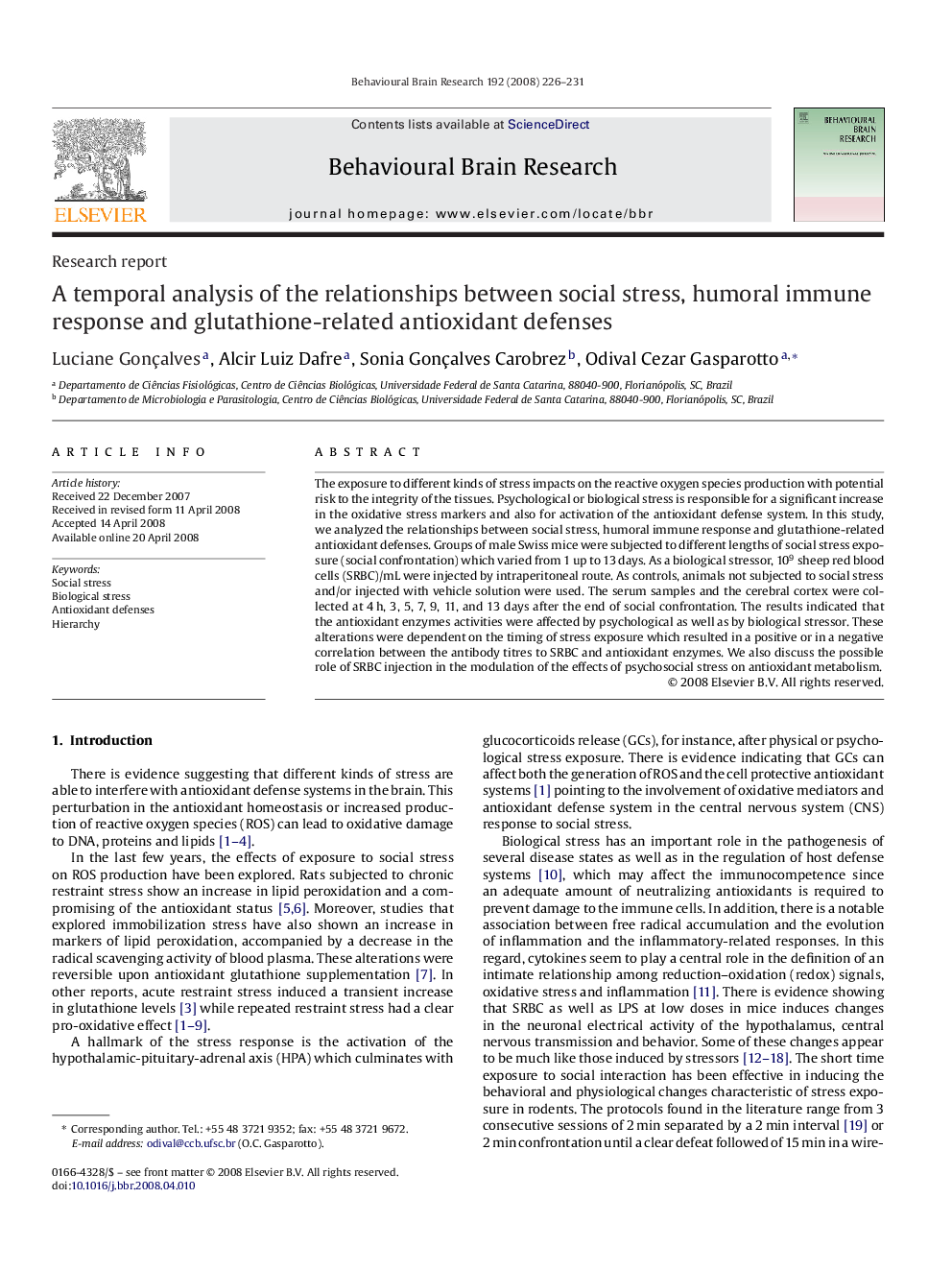| Article ID | Journal | Published Year | Pages | File Type |
|---|---|---|---|---|
| 4314977 | Behavioural Brain Research | 2008 | 6 Pages |
Abstract
The exposure to different kinds of stress impacts on the reactive oxygen species production with potential risk to the integrity of the tissues. Psychological or biological stress is responsible for a significant increase in the oxidative stress markers and also for activation of the antioxidant defense system. In this study, we analyzed the relationships between social stress, humoral immune response and glutathione-related antioxidant defenses. Groups of male Swiss mice were subjected to different lengths of social stress exposure (social confrontation) which varied from 1 up to 13 days. As a biological stressor, 109 sheep red blood cells (SRBC)/mL were injected by intraperitoneal route. As controls, animals not subjected to social stress and/or injected with vehicle solution were used. The serum samples and the cerebral cortex were collected at 4Â h, 3, 5, 7, 9, 11, and 13 days after the end of social confrontation. The results indicated that the antioxidant enzymes activities were affected by psychological as well as by biological stressor. These alterations were dependent on the timing of stress exposure which resulted in a positive or in a negative correlation between the antibody titres to SRBC and antioxidant enzymes. We also discuss the possible role of SRBC injection in the modulation of the effects of psychosocial stress on antioxidant metabolism.
Related Topics
Life Sciences
Neuroscience
Behavioral Neuroscience
Authors
Luciane Gonçalves, Alcir Luiz Dafre, Sonia Gonçalves Carobrez, Odival Cezar Gasparotto,
